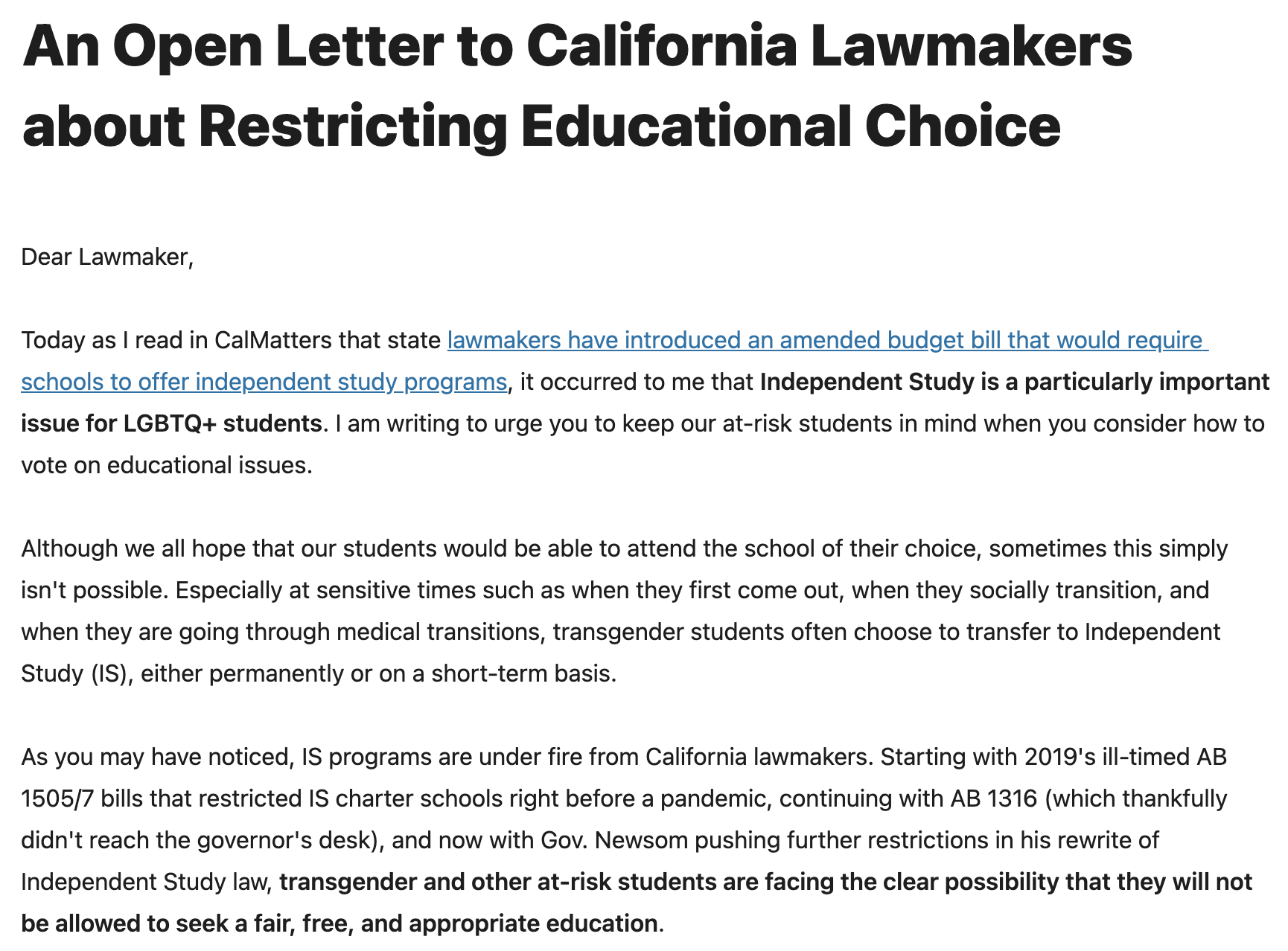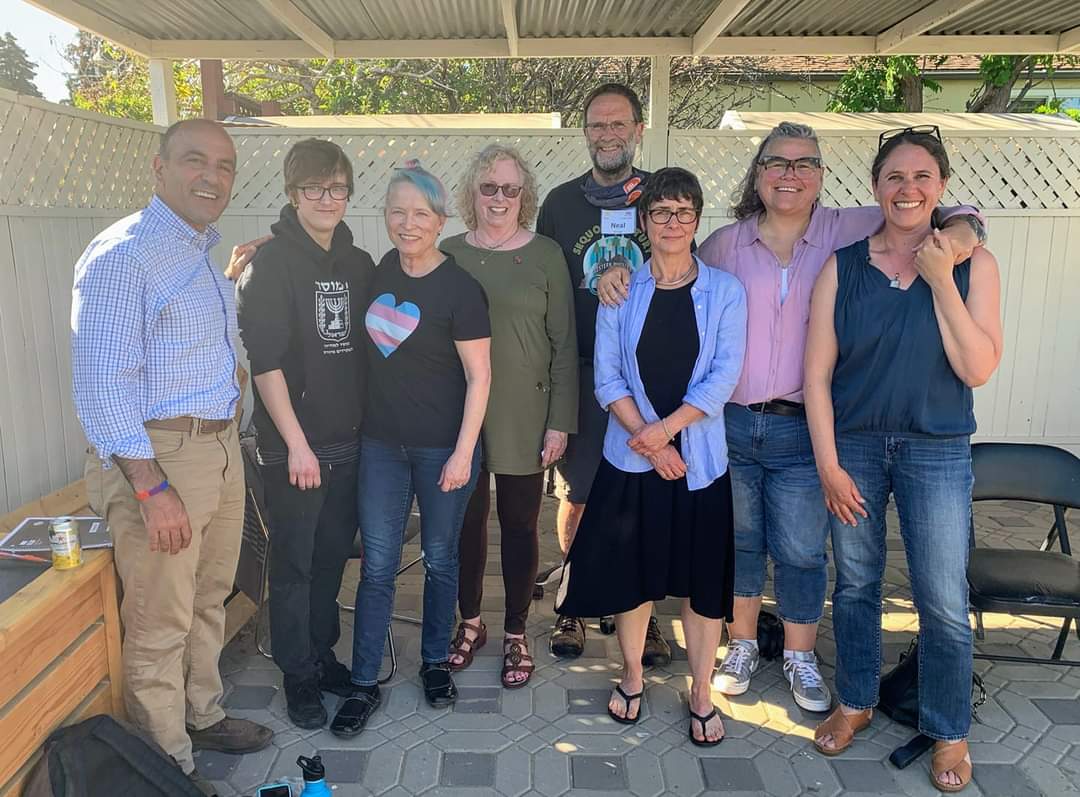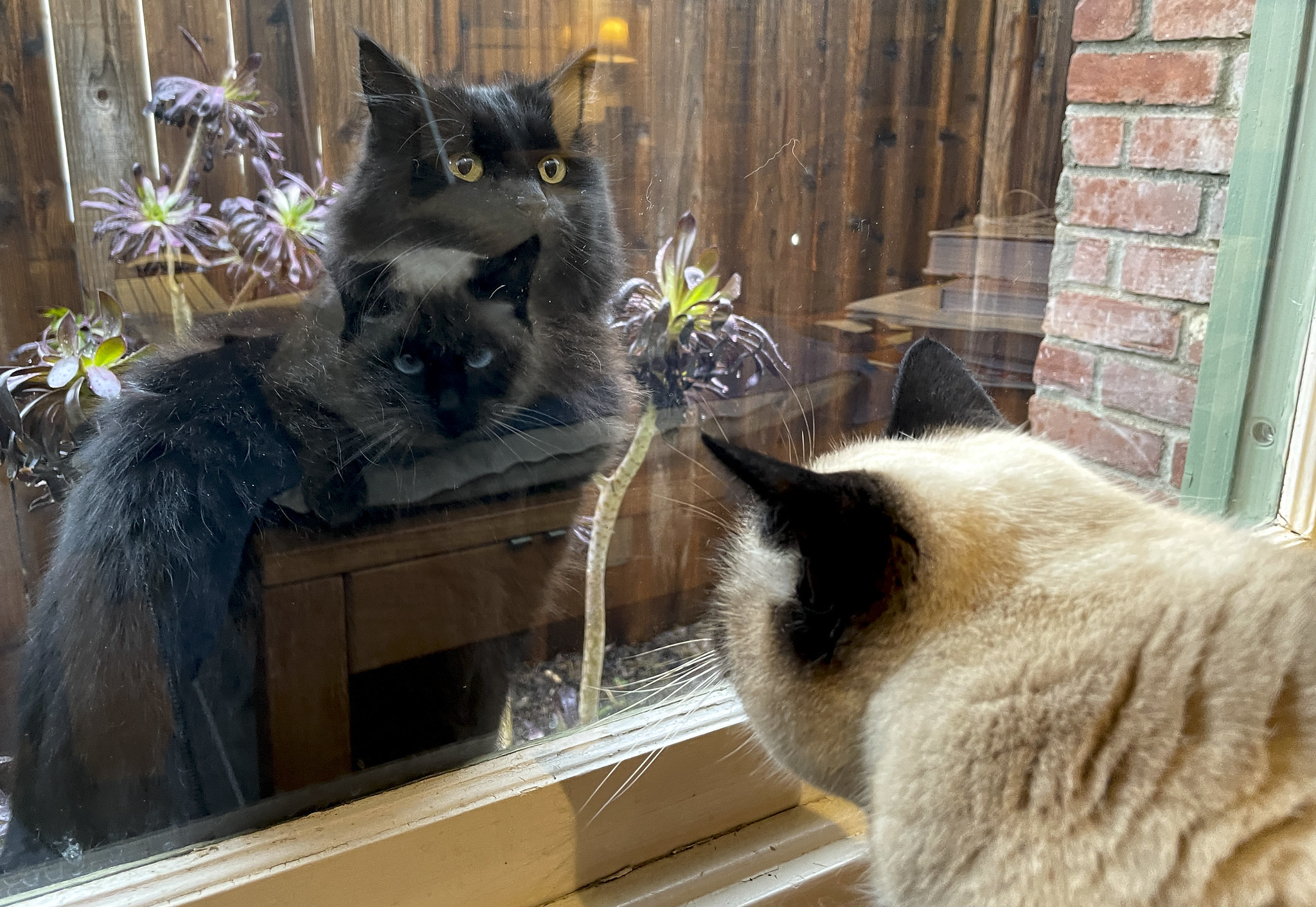Category: Politics
-

An Open Letter to California Lawmakers about Restricting Educational Choice
Dear Lawmaker, Today as I read in CalMatters that state lawmakers have introduced an amended budget bill that would require schools to offer independent study programs, it occurred to me that Independent Study is a particularly important issue for LGBTQ+ students. I am writing to urge you to keep our at-risk students in mind when…
-

Transgender support: healthcare, education, and community
Recently, Rep. Jimmy Panetta reached out to PFLAG to suggest a listening session about issues faced by transgender people, their families, and their communities. The meeting took place in the back yard of the Diversity Center with representatives from PFLAG Santa Cruz County and the TransFamilies of Santa Cruz County,. We were graced with the…
-

The Final Snub Says it All
The smallest snub can be the biggest gesture. Newspapers report that Melania Trump has not reached out to Jill Biden to welcome her to her new home. Now, I suppose this isn’t surprising. Her husband has never admitted that he lost the election. It may not be surprising, but it is deeply shocking. No matter…
